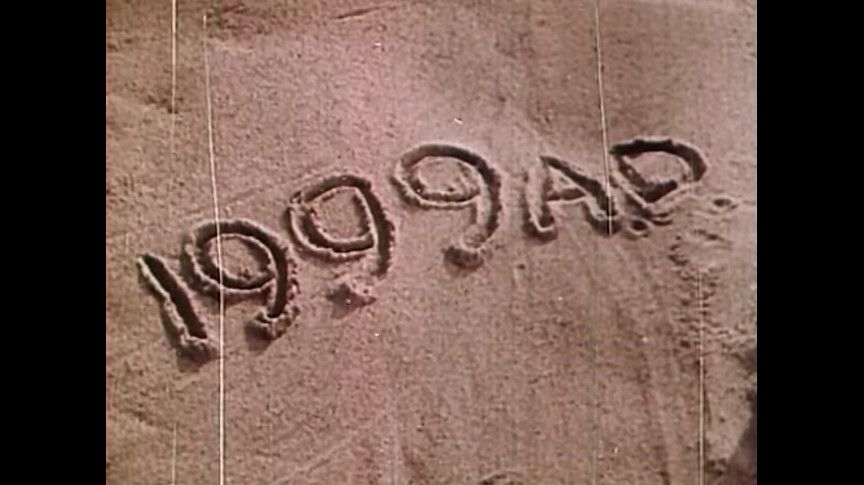The future sucks! The year 1999, as envisioned from 1967.
See the bizarre result when a 1960s company that manufactures TVs tries to tell us what they think the future will be like.

The majority of people who read this blog do so via email, and in that format it's a little awkward to direct the primary attention of an article to a video. But if you have a few spare minutes on this warm summer Sunday, I highly recommend you click the player to watch the video I've embedded above. It's a 21-minute film entitled 1999 A.D., produced in 1967 by Philco-Ford Corporation--better known as Philco, a leading manufacturer of stereos and TVs through much of the 20th century. This film was evidently created to commemorate Philco's 75th anniversary. It purports to depict what the Philco-Ford Corporation seems to think middle-class family life will be like in the year 1999, then thirty-two years in the future--or what they wanted people in 1967 to think it would be like. Far from being simply a bit of kitsch laughable for how far-off its predictions of the future (now past) are, 1999 A.D. is a fascinating and somewhat disturbing glimpse into the mindset of the past, and an underscoring of how blinkered ignorance of the present can color our conceptions of what the future might hold.
If you look carefully at 1999 A.D., you'll see a whole lot of assumptions that Philco had, or wanted viewers to have, about the future. The one that stands out above all else is the depiction of gender. The short film's most sympathetic character is Karen, who to modern eyes inhabits an ossified and brutally rigid pigeonhole of American gender roles: of course she's a stay-at-home mom, what in the 1960s would have been termed a "housewife" or slightly more palatable euphemism, "homemaker." The movie spends a lot of time showing us exactly how content Karen is and how much leisure time she has, primping flowers on her kitchen table and fawning over her obnoxiously milquetoast (and suspiciously well-behaved) 8-year-old son. As you might expect from a 1960s vision of the future, the movie drools with barely-concealed anticipation over all the electronic "labor-saving" devices that render Karen superfluous, and which one assumes Philco-Ford will manufacture. She doesn't have to cook; a machine that Star Trek would eventually label a "replicator" fixes the family's meals for them, though she carefully monitors their calories. She doesn't wash dishes; the film says the dishes are disposable. She doesn't wash clothes; in 1999 evidently all our clothes were supposed hang in automatic laundry closets. And the film is very careful to state that she used to be a teacher of fine arts, but now prefers to stay home. What message is this sending about the empowerment of women?


